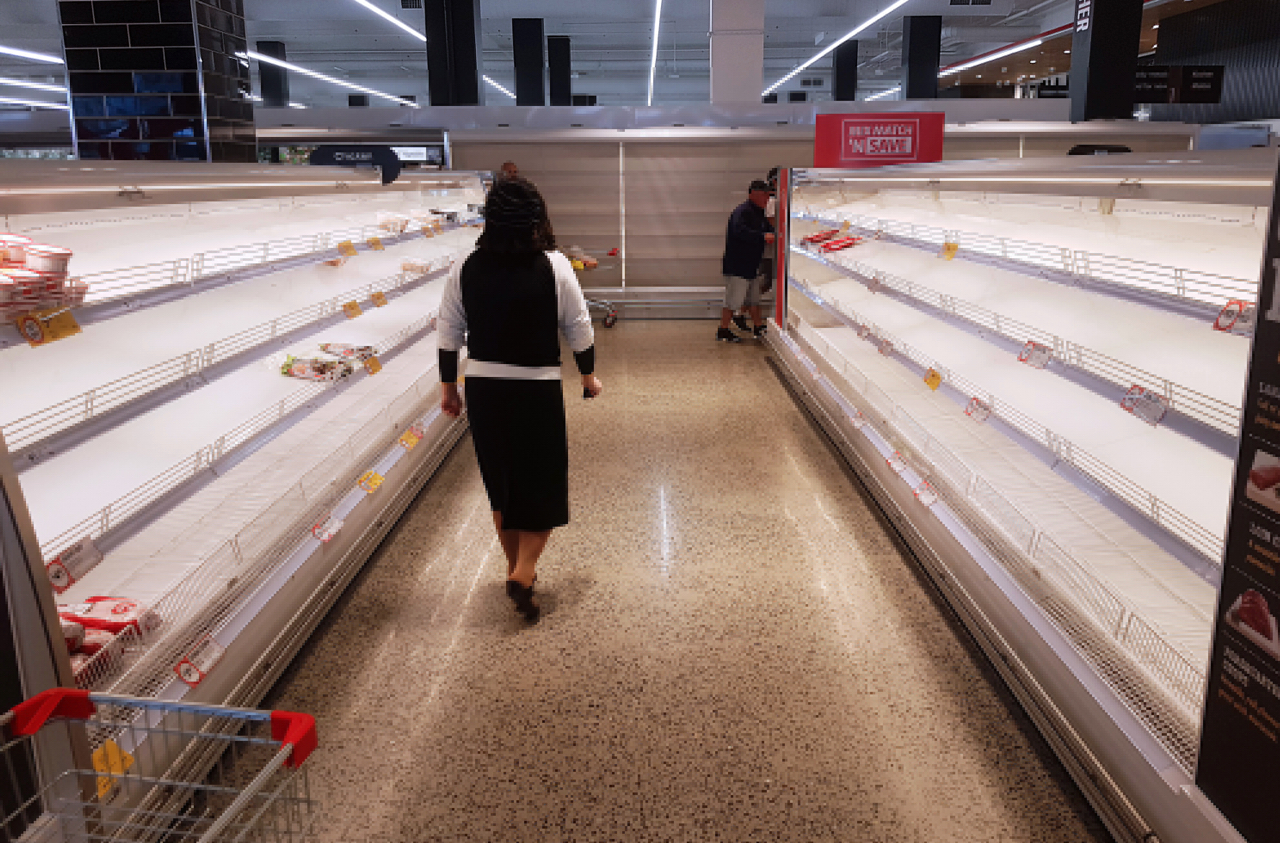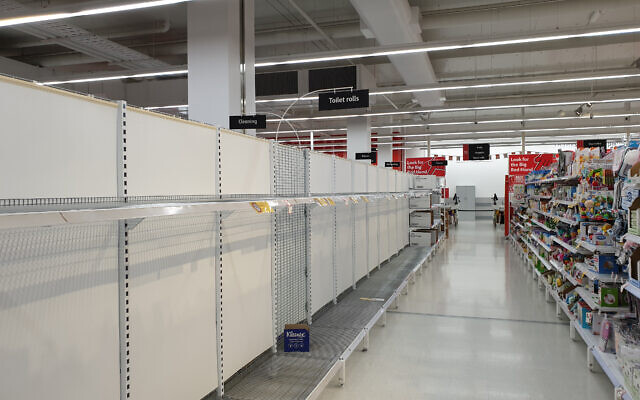Living in a world turned upside down
'There is a lot of justifiable fear but also a lot of unwarranted panic in our community right now. Panic and fear are contagious, unhelpful and undermining'.
WE really are living in “meshuggah” times – our certainties overturned, unpredictability at every corner, panic in the supermarkets, fear in every heart.
The Talmud tells a story of Joseph, the son of the sage Rabbi Yehoshua ben Levi, who became deathly ill and was thought to have died. Then he suddenly regained consciousness. It was as if he had returned from some far-away place. As he regained consciousness, his father said to him: ‘What did you see?’ Joseph said: ‘I saw an olam hafuch (a world turned upside down). What is above was below and what is below was above … ’ His father said to him: ‘My son, you have seen an olam barur (a clear world), you have seen the world clearly’” (Talmud Bavli, Pesachim50a).
We could rephrase the father’s comment with the contemporary, “My son you have seen the new normal, where nothing can be taken for granted, there’s only a sense of confusion and uncertainty … ”

This is a topsy-turvy reality we are living through; scary in the way this coronavirus, COVID-19, is spreading so rapidly; surreal in the way it has transformed the lives of millions; stunning to see places like Venice and Milan deserted; startling to know we can’t just get up and travel to Jerusalem for Pesach or Paris for a family simcha. The source for “olam hafuch” may well be the Megillah with its twoword description of the swift change of events as “Venehafoch hu” (Esther 9:1-2), a reversal of all expectations.
Indeed, we are living in Purim times where, as Rav Soloveitchik asserts, the key element is one of vulnerability and unpredictability. Purim, after all, means lottery, a game of chance and happenstance. He notes the similarity between Purim and Yom Kippur which is also referred to as Yom Kippurim – a day like Purim. One of the key rituals of Yom Kippur was the “goral” of lottery of the two goats, one for the Temple, one for Azazel. Both days, he notes, are characterised by a deep awareness of our human fragility.
At times like this it is prudent to “feel the fear”, to take the necessary precautions advised by our health authorities and that have been widely publicised.
Chief Rabbi Lau is emphatic in his ruling that it is halachically forbidden for someone in quarantine to attend shule. He ruled that it is an issur gamur (complete prohibition) for anyone at risk of harming others to visit public places and a violation of the principle “Venishmartem me’od lenafshoteichem – And seriously protect yourself.” We’re also asking you not to shake hands, kiss the Torah or mezuzot.
The English poet Lord Byron writes:
“[My advice] will one day be found
With other relics of ‘a former world’
When this world shall be former, underground
Thrown topsy-turvy, twisted, crisped and curled
Baked, fried or burnt, turned-insideout, or drowned
Like all the worlds before, which have been hurled,
First out of, and then back again to chaos … ”
In my understanding Byron is reminding us that the world has been topsy-turvy before, that this period of chaos will pass in time. And then we will still have other challenges to face! As I wrote last week: “This too shall pass.”
There is a lot of justifiable fear but also a lot of unwarranted panic in our community right now. Panic and fear are contagious, unhelpful and undermining. We all need to take a collective breath and act sensibly and sensitively towards each other.
Don’t stockpile or panic buy! It may make us feel (temporarily) in control but it can be hurtful or harmful for these really in need – who can’t afford to buy in bulk or just need the basics! We also need to be especially mindful of the impact of our behaviour on our children and grandchildren. Kids will feel your fear, they need your reassurance and calm confidence.
And calm confidence is not just an empty platitude. If you practise it, you spread it! The coronavirus is spreading so swiftly because we live in a hyper-connected world. And it’s precisely this web of interconnectedness that can help us face this crisis. We’re all in it together and our working together will make us stronger. This is reflected by the scientists across the world who are cooperating globally to find a vaccine.
We Jews believe “kol Yisrael areivim”, We’re all responsible for one another. We also believe in the common good in searching for tikun olam and darchei shalom, making this a better planet for our fellow human beings.
If the story of Purim is about chaos and vulnerability, it’s also about light and relief. The belief that our faith and prayers can change the course of the world, reverse the course of a plague. We’ve added Psalm 130 to our daily tefillot at shule: “From the depths I called You, Hashem, My Lord, hear my voice.”
It is part of a series of psalms called the songs of ascent. They were said by the Levites as they ascended the Temple steps, but they also help us ascend to the better, gentler, more caring dimension of ourselves. So let’s practise more acts of compassion and caring, give more Tzedakah, pray better, be our best selves.
A great preacher once said: “We live in an upside-down world. People hate when they should love, quarrel when they should be friendly, fight when they should be peaceful, wound when they should heal, steal when they should share.”
Now is the time for love, friendship, healing and sharing.
Rabbi Ralph Genende is senior rabbi of Caulfield Hebrew Congregation.


comments